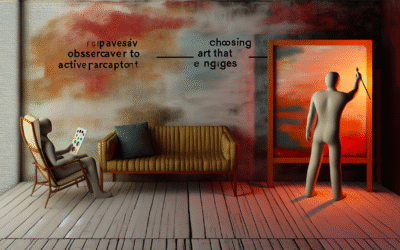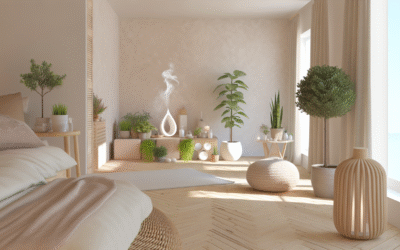
Shielding Your Sanctuary: Essential Tips to Prevent Sun Damage on Indoor Furniture
Sun damage is a common problem that can ruin the appearance and integrity of your indoor furniture. Whether it’s fading, discoloration, or cracking, prolonged exposure to sunlight can inflict irreversible harm. In this article, you will learn essential tips and techniques to prevent sun damage, ensuring your indoor furniture remains vibrant and intact.
We will explore practical solutions, scientific reasons backing these strategies, and actionable insights that you can implement in your home. Let’s embark on this journey to safeguard your sanctuary!
Understanding Sun Damage
Before diving into solutions, it’s vital to understand what sun damage really is. UV rays from sunlight can cause various forms of damage to your furniture, ranging from fading to material degradation.
The Science Behind Sun Damage
Ultraviolet (UV) rays can penetrate through glass and directly affect the finishes and fabrics of your furniture. Over time, this exposure can lead to:
- Fading of colors in upholstery and wood
- Weakening of adhesive bonds
- Drying out and cracking of materials
Common Signs of Sun Damage
Being able to recognize the signs of sun damage is critical. Look for:
- Discoloration and fading of colors
- Peeling finishes on wooden surfaces
- Dry, brittle upholstery materials
Practical Tips for Preventing Sun Damage
Now that you understand the risks, let’s explore the practical steps you can take to protect your indoor furniture from sun damage.
1. Utilize Window Treatments
One of the simplest ways to reduce sun exposure is to make use of window coverings such as:
- Blinds: Adjustable slats allow you to control light while maintaining privacy.
- Shades: Fabric shades can block UV rays while adding an aesthetic appeal.
- Curtains: Heavy draperies can effectively shield your furniture from direct sunlight.
2. Choose UV-Resistant Fabrics
Invest in furniture made with UV-resistant fabrics. Look for items labeled as UV-treated or fade-resistant during your shopping.
3. Apply Protective Coatings
Enhancing the longevity of your furniture can be achieved by applying protective coatings. Options include:
- Varnish: Acts as a barrier against UV rays on wooden surfaces.
- Fabric protectants: Specialized sprays can help defend upholstery.
4. Rearrange Your Furniture
Consider moving furniture away from direct sunlight or rearranging the layout to minimize exposure.
5. Regular Maintenance and Care
Regularly clean and care for your furniture. Dust and dirt can worsen sun damage, so keep surfaces clean and polished.
Understanding the Long-Term Benefits
Implementing these preventative measures not only prolongs the life of your indoor furniture but also enhances your overall home environment. Well-maintained furniture contributes to a harmonious aesthetic and increases your space’s value.
Economic Impact
Investing in prevention means spending less over time on repairs and replacements, which can add significant savings to your budget.
Environmental Efficiency
Preserving furniture also has its environmental benefits, reducing waste and the need for new materials.
Case Studies: Real-Life Applications
Here are a few scenarios illustrating effective protection against sun damage:
Case Study 1: The Living Room Transformation
A family invested in UV-protective window film for their living room. As a result, their leather couch remained vibrant and free from fading over the summer months.
Case Study 2: The Dining Room Experiment
After selecting shades made from UV-blocking material, another household saw their wooden table retain its finish without signs of wear despite continuous sun exposure.
Frequently Asked Questions
How can I tell if my furniture is sun damaged?
Look for signs such as fading, discoloration, or unusual cracks in the material, especially near windows.
Are there specific products for preventing sun damage?
Yes, consider UV-blocking window films, protective coatings, and UV-resistant fabrics for your furniture.
What type of curtains are best for blocking UV rays?
Heavy blackout curtains are most effective at blocking UV rays, but lighter fabrics may also be treated for additional protection.
Can I apply the protective coating myself?
Yes, many products are available for DIY application. Follow the instructions for best results.
How often should I maintain my indoor furniture?
Regularly dust and clean your furniture every few months to prevent buildup that can exacerbate sun damage.
Conclusion & Next Steps
In conclusion, preventing sun damage on indoor furniture is crucial for maintaining its beauty and longevity. By implementing various strategies such as using window treatments, choosing UV-resistant materials, and applying protective coatings, you can effectively safeguard your sanctuary. Don’t let the sun rob your furniture of its charm; start today! For more tips on home maintenance, check out our related articles.
Content Disclaimer
The information provided in this article is for educational purposes only. Consult a professional for specific advice tailored to your individual circumstances.
Categories
- Accent Walls & Ceilings (84)
- Art Curation & Gallery (83)
- Bedding Style Trends (89)
- Bedroom Makeover (96)
- Bohemian & Eclectic Styles (80)
- DIY & Budget-Friendly Decor (78)
- Eco-Friendly Design (83)
- Furniture Care (87)
- Home Decor & Design Ideas (181)
- Home Wellness Spaces (103)
- Integrated Outdoor Living (91)
- Japandi Style (84)
- Kids and Nursery Decor (73)
- Living Room Decor (99)
- Mix & Match Techniques (95)
- Modern & Contemporary Design (88)
- Rug Sizing & Placement (89)
- Scandinavian Design Inspiration (51)
- Seasonal Home Decor (100)
- Small Space Solutions (93)
- Wall Art & Painting Tips (94)
Recent Comments
Archives
Product Gallery
-
Majestic African Wildlife Canvas Art for Stylish Home Decor
Rated 5.00 out of 5 -
Cozy Irregular Green Plush Rug for Nordic Living Spaces
Rated 5.00 out of 5$33.00 – $203.00Price range: $33.00 through $203.00 -
Scandinavian Geometric Area Rugs for Stylish Home Décor
Rated 5.00 out of 5$25.00 – $365.00Price range: $25.00 through $365.00













